Protein powders can provide a quick and convenient burst of nutrition before or after a workout, when you're on the go, or in between meals when those hunger pangs hit. But not all protein powders are created equal. In fact, some can contain hidden health risks in the form of artificial flavors, thickeners, added sugars, and other shady ingredients. What's worse—a 2018 Clean Label Project investigation found that some of the most well-known protein brands contained alarming levels of lead, arsenic, mercury, cadmium, and BPAs.
Protein powder is considered a dietary supplement—which means the manufacturers, rather than the FDA, oversee the labeling and safety of the products.
"Since the supplement industry is largely unregulated, it's important to choose well-known brands with third-party testing standards for safety," says Rachel Fine, RD.
With that in mind, here are some of the protein powders you might want to avoid the next time you are at the grocery store or are ordering online.
Natreve Vegan Protein Powder: French Vanilla Wafer
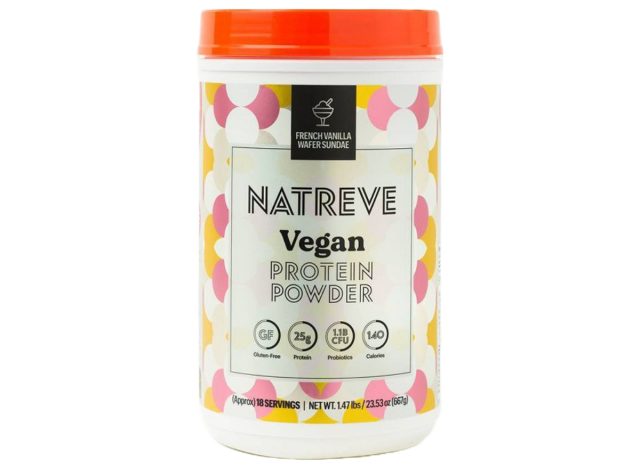
From a health standpoint, there's nothing particularly concerning about Natreve's "moo-less" protein powder: in fact, this well-balanced protein is non-GMO, gluten-free, contains no added sugar, and is made with no artificial flavors, colors, or sweeteners.
However, if like most of Natreve's consumers you're specifically buying this protein because it's vegan, it's worth noting that there's been a product recall because it's been discovered to contain undeclared milk. Due to a manufacturing production error, containers from two lots contain milk-based ingredients that don't appear on the label.
For people who have an allergy or severe sensitivity to milk, consuming this protein powder could cause a life-threatening allergic reaction. And for those who are lactose intolerant, it could still cause some pretty unpleasant digestive symptoms.
Bulletproof Collagen Protein
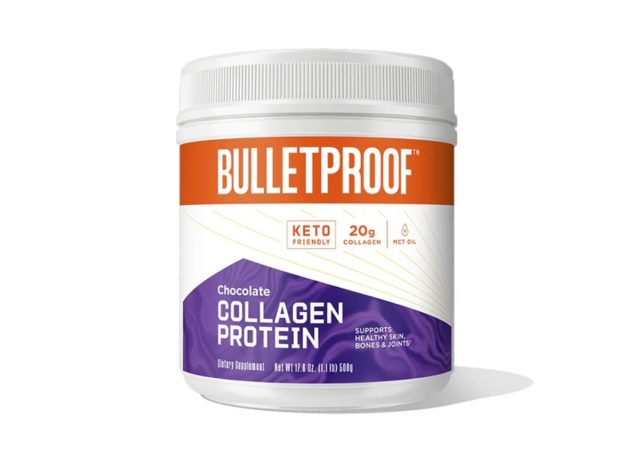
Collagen is a particular type of protein that serves as a building block for all your body's connective tissues. In recent years, collagen protein powders have become all the rage, promising a wide range of impressive potential benefits—from boosting muscle mass to supporting bone health. But Kristin Draayer, RD, doesn't recommend it.
"Collagen protein has been touted to be good for hair, skin, and joint health, but there is no valid evidence to support these claims," she explains. "Through the process of digestion and absorption, collagen is broken down into amino acids before being absorbed into the bloodstream. The body then uses these amino acids to build proteins that the body needs. There is no guarantee that the amino acids will be restructured into collagen. In fact, it's more likely that they won't be."
Not only that, but Draayer says collagen is a poor protein for muscle building since it doesn't contain all nine essential amino acids—particularly leucine, which is critical for the muscle-building process.
But the concerns don't stop there. The Clean Label Project's study of leading collagen supplements found that 64% tested positive for measurable levels of arsenic, 37% tested positive for measurable levels of lead, and 34% tested positive for trace levels of mercury.
Specifically, Bulletproof's Collagen Protein (Chocolate flavor) topped the list of worst offenders, containing 2.1 mcg of arsenic, 9.17 mcg of cadmium, and 1.33 mcg of lead. A 2022 review in The Journal of King Saud University found that ingesting excessive levels of these heavy metals can cause significant damage to every organ of the body, leading to an increased risk of cancer, neurological defects, respiratory disorders, osteoporosis, and other conditions.
BSN Syntha-6 Protein Powder
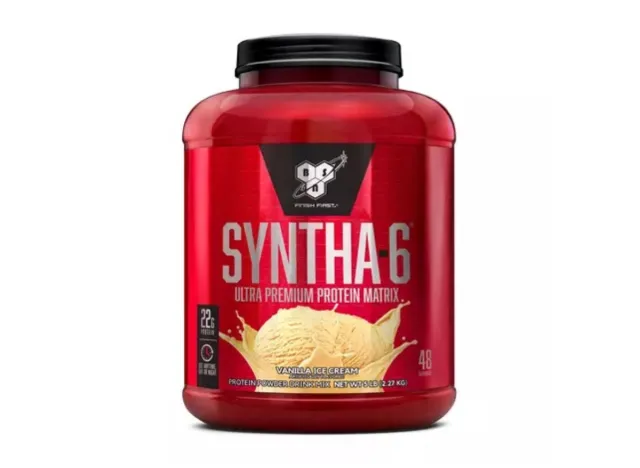
Bill Bradley, RD, CEO at Mediterranean Living recommends skipping this protein powder because it contains a one-two punch of corn syrup and sucralose, an artificial sweetener.
"Sucralose and other artificial sweeteners are bad for your gut, and corn syrup can lead to diabetes and obesity," says Bradley.
That's not the only reason to avoid this product—the ingredients also include acesulfame-potassium, another artificial sweetener. While the FDA has deemed this ingredient safe in limited quantities, studies have shown that consuming it in high amounts may lead to an increased risk of cancer and metabolic syndrome, and may cause changes in brain function.
Arbonne FeelFit Pea Protein Shake
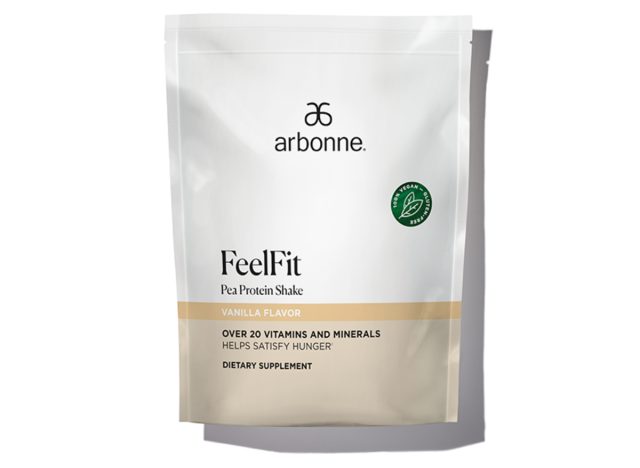
The first ingredient in this product is the "Arbonne Protein Matrix Blend," which contains 56% pea protein. The Clean Label Project found that plant-based protein powders, including pea protein, tend to have higher levels of heavy metals than their dairy-containing counterparts. Not only that, but nearly all cocoa powders—another ingredient found in this powder—have been found to contain cadmium.
It's also worth noting that peas contain phytic acid. This anti-nutrient binds to essential minerals like iron, calcium, and zinc, as it passes through the gut, preventing your body from absorbing them.
Arbonne's protein powder also contains thickening agents, which have been known to cause gas, bloating, constipation, and diarrhea.
Adaptogen Science Tasty Whey Protein Powder
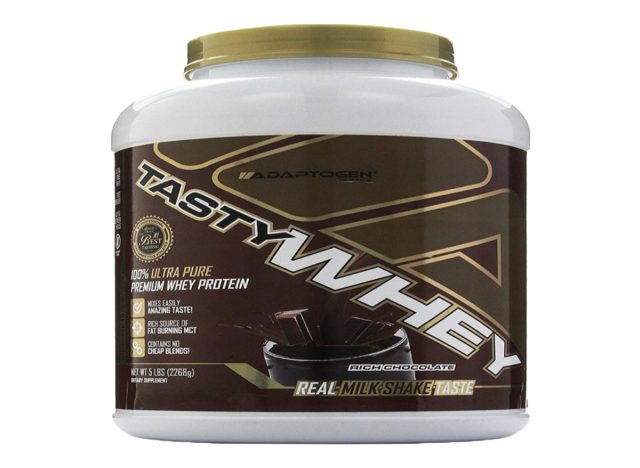
There are lots of reasons to stay away from this protein powder—including pesky thickeners and artificial flavors.
For one, it contains partially hydrogenated coconut oil, which produces a high amount of trans fats during the hydrogenation process. Trans fats can increase "bad" LDL cholesterol while decreasing "good" HDL cholesterol, thus increasing your risk of heart attack or stroke.
Adaptogen Science's protein powder also includes sucralose, which has been found to wreak major havoc on the bacteria in your gut.
Draayer advises forgoing protein powders with artificial sweeteners, and lightly sweetening your shakes with fruit, or a dash of honey or maple syrup.
No comments:
Post a Comment